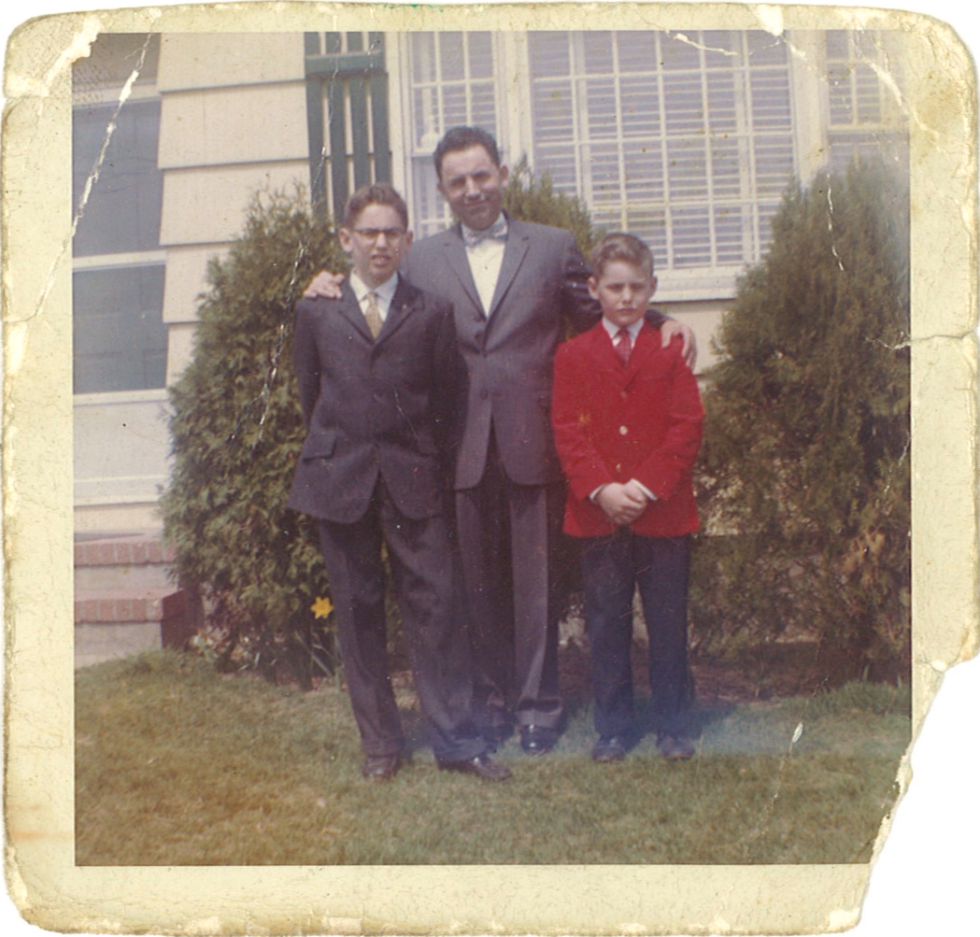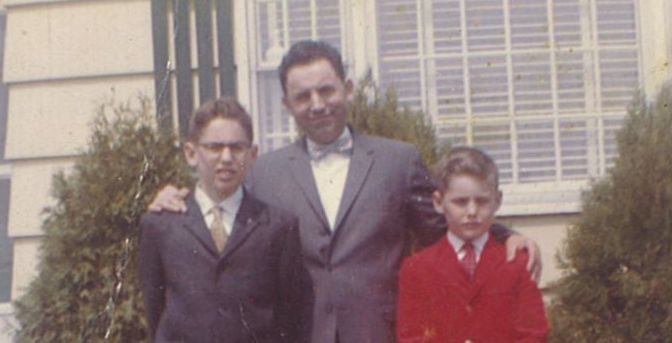Double agents are a trope of movies, their uncertain loyalties adding tension and drama to the story. However, they are inspired by real men and women that played sides against one another. During World War II, a Basque man from Bizkaia, José Laradogoitia Menchaca, actually served as a double agent. This “Basque shepherd, swindler and womanizer” started working for the Germans but switched sides, sending the Germans misinformation about Allied activities. Only now, as the United States government declassifies documents related to Laradogoitia, are we learning about his activities and role during the war.

- Laradogoitia was born in Urduliz, a small town just outside of Bilbao. In 1930, when he was just 18 years old, he made his way to the United States, ultimately joining his brother in Idaho. He worked on ranches and as a trucker until 1940 or 1941, when he was tried and deported for passing bad checks.
- Back in Spain, he was recruited by the German George Lang to spy for the Nazis and their Abwehr service, who had an extensive network in Bilbao. He agreed to work with the Germans to avoid being imprisoned by the Franco regime. He was given the code name “G” for Gernika. He was first assigned, in 1942, to send Allied shipping information from Rio de Janeiro, but in 1943 he was given a new mission, to establish a German radio spy network on the US-Mexico border. His handlers concocted an elaborate scheme where, from Mexico, he would contact his brother Antonio, still living in Cascade, Idaho, to see if he would help him cross the border. If not, Laradogoitia would set up on the Mexican side of the border to establish his network.
- The Germans viewed Laradogoitia as a perfect vehicle to connect their spy network in Bilbao with Latin America and the United States, as he could speak English and move around in Latin America with relative ease. They taught him ciphers and the use of chemicals to create invisible ink. However, while still living in Brazil, Laradogoitia compromised himself, casually revealing information that only a spy would know. The Basque Government in Exile and the Basque Information Service took advantage of this and presented Laradogoitia to the American government as a double agent. Though the US agencies dithered about whether to work with the Basques, to avoid upsetting Spain, ultimately, on May 22, 1943, Laradogoitia surrendered to American authorities in Philadelphia.
- While at first his value as a spy was unclear, it was revealed that he had kept information from the Germans that could have jeopardized Operation Torch, the Allied invasion of North Africa. Laradogoitia had known about American movements in that direction, but had refrained from passing that information to his German handlers. Another double agent, the Catalan Joan Pujol Garcia, played an even bigger role in helping Operation Torch succeed.
- Laradogoitia also revealed that the Germans expected an imminent invasion of Spain by the British, with landing points either in Gibraltar or in the Basque Country, on the beaches between Gorliz and Elantxobe. Lang had a map denoting possible landing sites, one at a deserted beach near Bermeo, that they had fortified. However, Laradogoitia’s information revealed that the German defenses of the Basque Coast were relatively weak. Further, in two exhausting interviews, the FBI learned valuable information from Laradogoitia about the Nazi transatlantic network.
- Ultimately, Laradogoitia became a double agent, with the code name Bromo (bromine), though he was called Little Joe internally. He settled in New York and created a misinformation network meant to disrupt and confuse the network Lang had created. He posed to the Germans as a naval mechanic who had infiltrated various ship yards.
- By 1945, however, the game was up. The FBI began arresting some of the men Laradogoitia had recruited as part of his network and even played up in the press how they had been using Laradogoitia to feed the Germans misinformation. Further, Laradogoitia was never the most reliable spy, as he was easily distracted: “He loves women too much and jumps on the smallest petticoat.”
- In the end, Laradogoitia was well rewarded for his war-time efforts. He was given a ranch in Montana, along with a large fortune, though it seems he lived many of his remaining days in New York and in Florida, where he had a retirement home in Pompano Beach. He died on December 11, 2002. Even though it has been nearly 20 years since his death, may details about his missions with the FBI are still sealed.
Primary sources: De Gernika (G) a Bromo (Little Joe). Nuevos datos sobre el espía vasco José Laradogoitia Menchaca by David Mota Zurdo; The Deceivers: Allied Military Deception in the Second World War by Thaddeus Holt.
Note that, if you get this post via email, the return-to address goes no where, so please write blas@buber.net if you want to get in touch with me.


